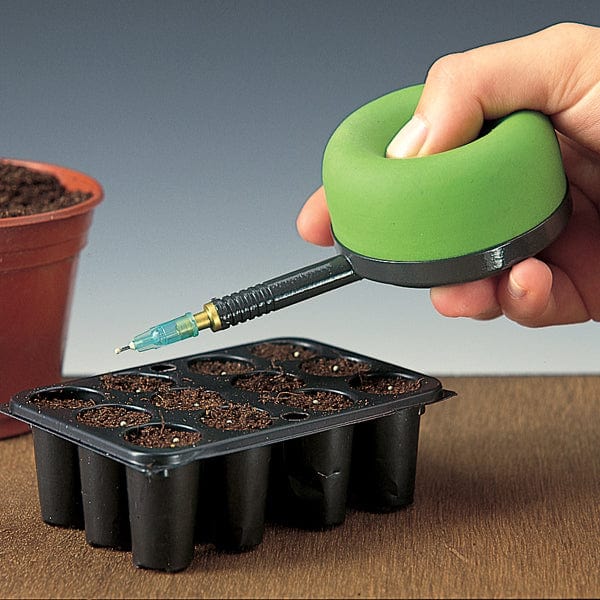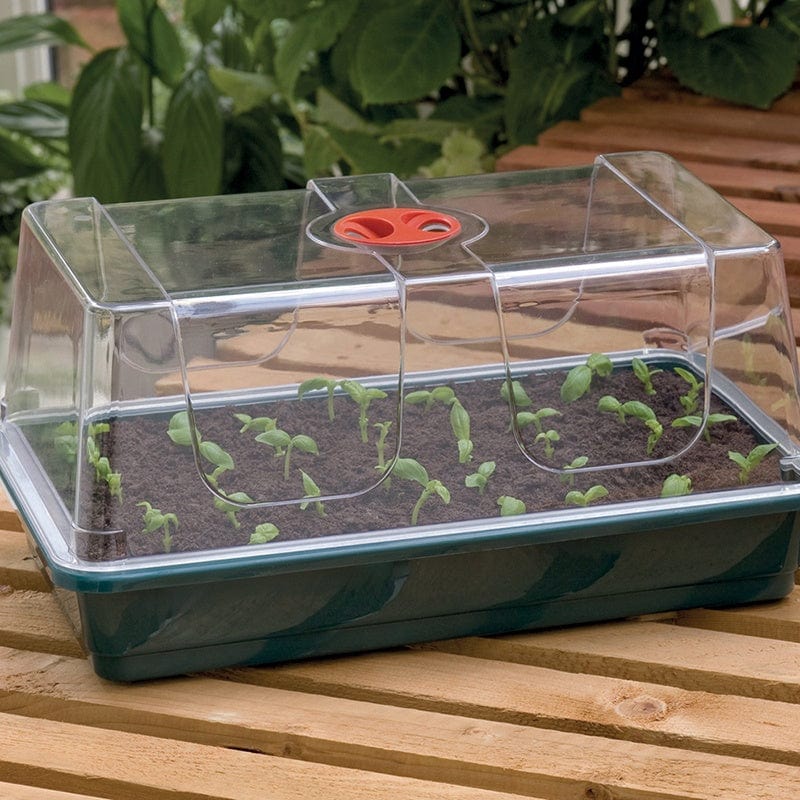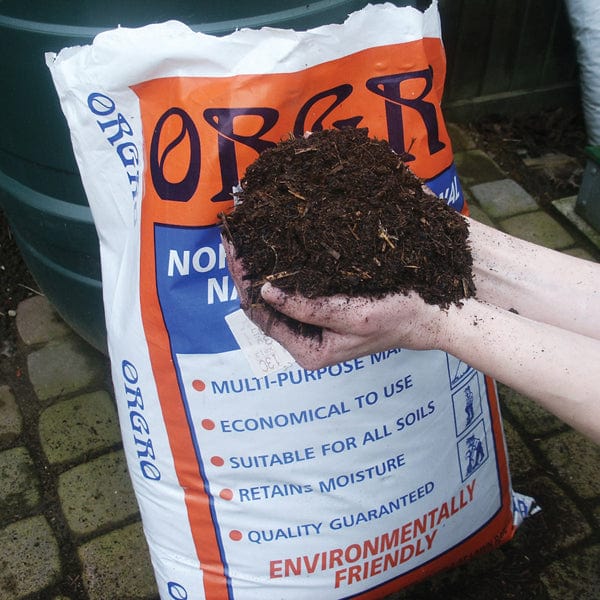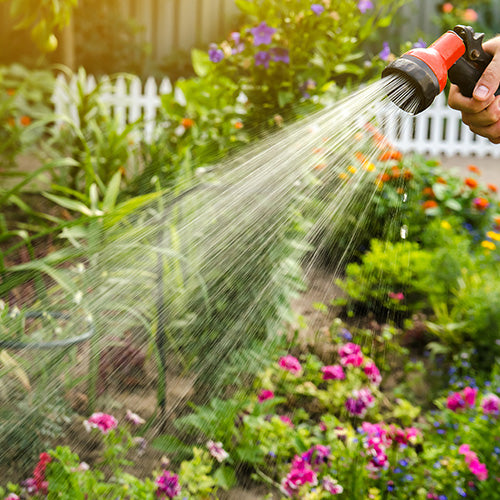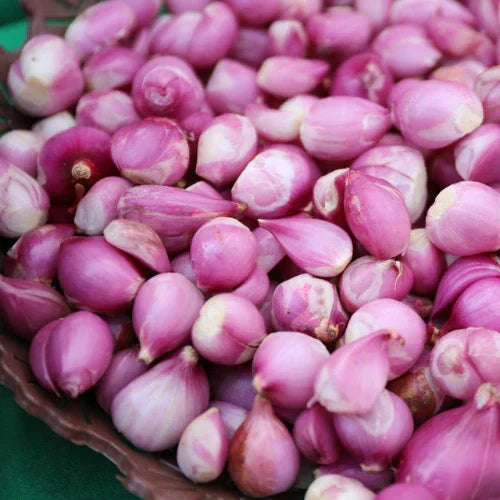Feeding
To get the most from your plants they will also need a constant supply of nutrients. Adding compost and well rotted manure will add little in the way of nutrients, as their role is to improve the soil structure. To hold on to the nutrients, you will also need a fertiliser.
For most crops, add a general fertiliser a week or so before sowing the first seeds or planting out. You can use Growmore or blood, fish and bone if you prefer to garden organically. Some crops will need additional light feeds throughout the growing season using a liquid feed. For leafy crops this should be a balanced feed containing equal amounts of the major nutrients. For fruiting crops, you should change to one that is higher in potash to improve the quality and quantity of the fruit. Plants growing in containers will be totally dependent on you to supply nutrients and you should either feed weekly with a liquid feed after 2 or 3 weeks, or add a controlled-release fertiliser to the compost at the time of planting.
Watering
The majority of a plant’s weight and strength comes from its water content. Water is essential for nutrient uptake and most vital internal life processes of the plant. If a plant goes short of water it stops growing and often starts to go to seed prematurely – or just dies! For healthy, strong growth and the highest yields of the best crops your plants will need a constant water supply.
Watering dry soil in the summer is often necessary. Plants growing in containers are almost totally dependent on you to supply water and you may have to water some container plants once or even twice a day in summer to prevent them drying out. Try to keep the soil or compost evenly moist as soaking dry soils can cause some plants to split and become unusable.
Plants are at their most vulnerable in their initial growth stages, so make sure seed beds and seeds sown in containers are kept moist while plants are establishing. Always use fresh tap water for this stage of watering as water butts may contain pathogens that could affect seedling growth. Most seedlings crops such as greenhouse ‘exotic’ and runner beans will suffer shock if watered with cold water, so allow it to reach ambient temperature before use.
If water is in short supply then the crops most in need are: peas, beans and sweetcorn when they are in flower, potatoes when they are producing new tubers and large leafy crops before they start to wilt.














